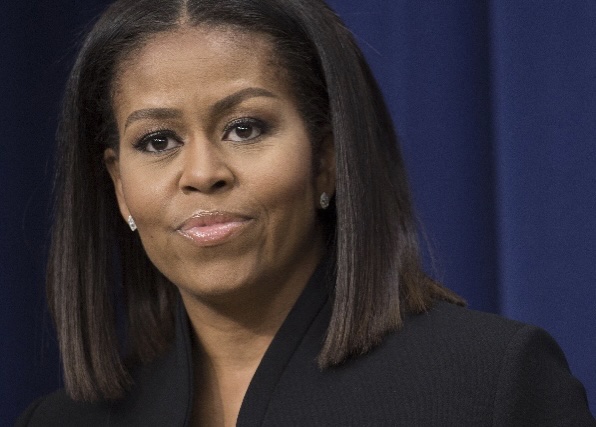“I am not free while any woman is unfree, even when her shackles are very different from my own.” — Audre Lorde
The NYU Stern Women in Finance (SWF) and the Center for Business and Human Rights (CBHR) recently hosted an event that focused on Equity in Investing. The event featured a panel discussion moderated by Lynda Clarizio (Harvard Law School, 1985). Panelists included Michele Browne (Harvard Business School, 1993), Naseem Sayani (NYU Stern, MBA 2008), and Carol Liu (NYU Stern, MBA 2023). The discussion focused on prevalent industry practices that exacerbate inequity in investment and offered recommendations for overcoming these barriers.
Insights from the NYU Stern Center for Business and Human Rights (CBHR) suggest several strategies to address inequities in the investment industry:
- Diversify Asset Management: Women and minority group members manage less than 2% of the $80 trillion in assets under management in the U.S. To counter this disparity, it’s essential to challenge investment practices that create barriers for these groups, promoting greater inclusion in asset management roles.
- Enhance ESG Practices: Environmental, Social, and Governance (ESG) investing should be reformed to better assess corporate social performance. This includes holding companies accountable for their impact on vulnerable stakeholders, such as workers in global supply chains, and ensuring that ESG metrics accurately reflect social factors.
- Empower Through Education and Networking: Programs like NYU Stern’s EmpowHER aim to help a diverse group of students committed to gender equity build their financial expertise and networks, creating the foundation for gainful career opportunities in sustainable investing. Such initiatives are crucial for equipping underrepresented groups with the skills and connections needed to succeed in the financial industry.
Implementing these strategies can contribute to a more equitable investment landscape, addressing systemic barriers and fostering inclusivity within the industry.
No Expressway
As difficult and challenging it has been for women to succeed in business, the new Trump administration has eliminated pathways that have been helpful and enabled women to move in, up and through the labyrinth of corporation bureaucracy.
During President Donald Trump’s previous administration, several initiatives were introduced to promote women’s economic empowerment. In 2017, the Women’s Global Development and Prosperity (W-GDP) Initiative was launched, aiming to reach 50 million women in developing countries by 2025. This initiative focused on enhancing women’s participation in the workforce, supporting female entrepreneurs, and enabling women within the economy. An initial $50 million was allocated to the W-GDP Fund through the U.S. Agency for International Development (USAID).
The Promoting Women in Entrepreneurship Act was signed into law in 2017. This act authorized the National Science Foundation to support programs encouraging women to extend their work beyond the laboratory into commercial applications, thereby fostering greater female participation in science and technology sectors.
Recent policy shifts have raised concerns about the future of such programs. In early 2025, President Trump issued executive orders targeting Diversity, Equity, and Inclusion (DEI) initiatives within the federal government, mandating the recognition of only two genders—male and female. These orders have faced legal challenges from civil and human rights organizations, which argue that they undermine efforts to promote equal opportunities for historically marginalized groups.
Significant budget cuts to USAID have been proposed, threatening the continuation of programs like the W-GDP. These cuts could potentially end millions of dollars in U.S. funding earmarked for women’s economic empowerment globally.
Corporations Pull Back
In the private sector, companies such as KPMG have responded to the administration’s stance by removing DEI initiatives from their websites, reflecting a broader trend of scaling back such programs in corporate America. Other companies following this policy include Amazon, Google, Meta, Walmart, McDonald’s, and Target. These developments indicate a complex landscape for women’s equity investment under the current administration.
What to Do
In response to the Trump administration’s executive orders rolling back Diversity, Equity, and Inclusion (DEI) initiatives, women are left with limited options. Civil rights organizations are challenging these measures in court, arguing they violate constitutional rights and hinder equal opportunities. Supporting these legal efforts through donations or advocacy can amplify their impact.
Women can also strengthen networks of mutual support, mentorship, and resources to navigate and counter the effects of anti-DEI policies. Additionally, reaching out to legislators to express concerns and advocate for inclusive policies is a valuable action. Encouraging businesses to uphold or introduce DEI programs can help maintain inclusive environments, despite shifts in federal policy.
Advance. With Purpose, Strategy and Caution
Engaging in these efforts requires significant time and energy, and there is always a risk that advocacy could elevate one’s profile in ways that may conflict with corporate objectives or policies. However, recognizing that the world is constantly changing, staying engaged through voting and encouraging others to vote remains one of the most powerful tools for creating systemic change. Supporting candidates who champion gender equality and inclusivity can help shift policies at all levels.
Although the landscape may seem daunting, there are still ways for women to advance their objectives—through solidarity, education, legal empowerment, and local actions. In these turbulent times, the corporate climb will be even more challenging. The current administration appears determined to impose additional roadblocks, requiring all the skills in our arsenal, including (but not limited to) patience, fortitude, strength, resilience, stamina, determination, endurance, guts, and grit.

“There is no limit to what we, as women, can accomplish.” — Michelle Obama





